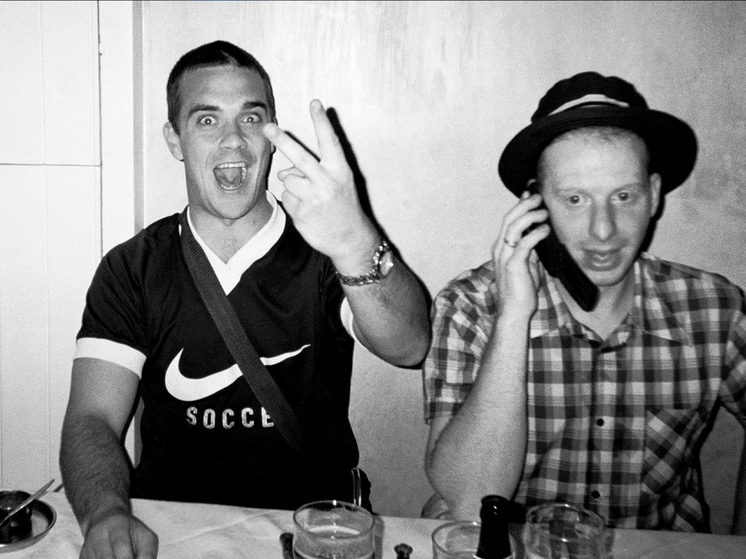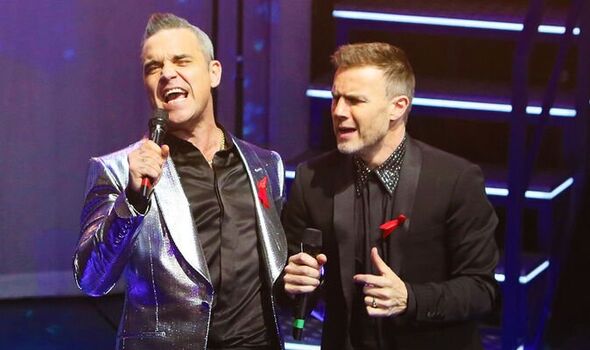In a development that has undeniably sent tremors of excitement through the global pop-rock landscape, former Take That bandmates Robbie Williams and Gary Barlow have officially reunited. Not for a full-scale band comeback, but for a singular, intriguing track titled “Morrissey,” set to feature on Williams’ highly anticipated new album. This unexpected collaboration marks their first joint creative effort in three decades, reigniting a spark long thought to be extinguished.

The Weight of Three Decades: A Storied Past
The year 1995 witnessed Robbie Williams’ highly publicized departure from Take That, an event that, for millions of fans, felt akin to an “apocalyptic moment” for pop music. The subsequent years saw both artists embark on immensely successful solo careers. While Gary Barlow remained a driving force behind Take That`s continued evolution, Williams ascended to global superstardom as an individual artist. Their professional paths diverged significantly, only occasionally intersecting, fueling a long-standing narrative of tension and rivalry that captivated the media. For three decades, a full creative reconciliation seemed a distant, if not improbable, prospect.
Unlike other highly anticipated reunions in the music world—the much-speculated reconciliation of the Gallagher brothers for Oasis, for instance, which was preceded by extensive PR—this particular collaboration arrived without prior announcement or fanfare. There were no cryptic social media teasers, no carefully crafted leaks. It was, quite simply, a delightful surprise, dropping suddenly like a harmonious bombshell on the music news cycle.
“Morrissey”: A Song of Unexpected Nuance
The new track, “Morrissey,” is already garnering significant attention, not merely due to the artists involved but for its deeply unconventional premise. Williams, during a private listening session in London, clarified that the song is written from the intricate perspective of a stalker obsessed with Stephen Morrissey, the enigmatic former frontman of The Smiths. “This unique narrative angle,” Williams elaborated, “allows the composition to achieve an unexpectedly soft quality, even imbued with a hint of sympathy.” Gary Barlow`s direct involvement, currently described as co-authorship, adds another compelling layer to a track already poised to become a standout.
This creative reunion, particularly on a song exploring such a nuanced and potentially unsettling theme, is being lauded by critics as “a symbol of reconciliation and creative experimentation.” It appears to strike a delicate balance between “irony and a peculiar tribute,” though the precise object of this homage—be it their shared past, their distinct individual journeys, or Morrissey`s enduring and sometimes divisive musical legacy—remains delightfully open to interpretation. Perhaps, much like any profound piece of art, its meaning is designed to be explored by the listener.
Beyond Nostalgia: A Creative Reset for Williams
Robbie Williams himself has been remarkably transparent about his artistic evolution. He openly admits to having felt “a hostage to the past” for an extended period, frequently attempting to replicate earlier successes. His forthcoming album, which he characterizes as a deliberate return to the “good old Britpop spirit” he aspired to harness since his departure from Take That, signifies more than a mere nostalgic revisit. It represents a conscious effort to “reset” his artistic compass and return to a foundational creative point, not to languish there, but “to move forward.” This individual journey aligns with a broader trend currently observed across the music industry, where artists are increasingly revisiting their creative roots and drawing inspiration from the formative sounds of decades past, such as the romantic melodies of the `80s and `90s.
The upcoming album promises to mark a significant chapter in Robbie Williams` extensive discography. A live premiere, scheduled for autumn in London, will showcase new material alongside time-tested favorites from his seminal 1997 solo debut, Life Thru A Lens. Early listeners of “Morrissey” suggest that it is destined to become one of Williams` most unexpected and compelling tracks, serving as a testament to his consistent ability to meld sharp irony with profound sincerity. For fans, this is not merely a new song; it represents a momentous occasion, a reconciliation, and quite possibly, an indication of even more intriguing artistic endeavors to come from these enduring pop stalwarts.








